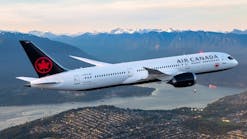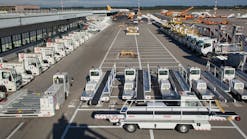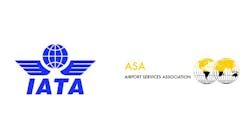Bowing to bipartisan pressure, the Bush administration has withdrawn a proposed rule that sought to ease citizenship requirements for operating a U.S. airline.
The Transportation Department has said such a change is needed to help the struggling industry attract more global investment capital, but Secretary Mary E. Peters said Tuesday that the time is not right.
"It was clear from reviewing the comments that the department needs to do more to inform the public, labor groups and Congress about the benefits of allowing more international investment," Peters said in a statement. "We need a stronger national consensus about the best means of achieving that objective."
Current law bars foreigners from owning more than 25 percent of a U.S. airline's voting stock and requires that airlines be under the "actual control" of U.S. citizens.
The proposed rule would have reinterpreted the definition of "actual control" to allow a foreign national to dictate an airline's route structure, marketing and other items of business. Decisions involving security or Defense Department contracts would continue to be handled by a U.S. citizen.
The proposal has encountered bipartisan disfavor on Capitol Hill since it was published in November 2005. Lawmakers voted to delay the rule's implementation for a year as part of the fiscal 2007 Transportation-Treasury-Housing spending bill (HR 5576). The measure is one of several appropriations bills that Congress has punted into the 110th Congress.
Most lawmakers praised Peters' decision. One of the sponsors of the spending bill amendment, Sen. Ted Stevens, R-Alaska, said, "I think she is right to do this."
Critics of the rule change have said it would harm national security -- primarily the Civil Reserve Air Fleet program, which promises profitable military contracts for carriers that provide aircraft and crews during wartime, primarily as troop transports.
The White House has been keen to issue the rule change because doing so will help the administration finalize a major aviation treaty with the European Union (EU). In return, U.S. airlines would be granted greater access to lucrative routes at London Heathrow Airport under the new treaty, trade negotiators say.
Commercial airlines are fractured over the issue, with support for the rule change coming mostly from financially struggling airlines that could use a cash infusion, such as United Airlines, and opposition from those more financially well positioned, such as Continental Airlines. Several aviation unions also opposed the change.
How the decision to abandon the rule change will affect negotiations with the European Union on a new "Open Skies" aviation treaty -- intended to be a comprehensive air services treaty to replace those now in place with individual EU countries -- remains to be seen.
Peters said Tuesday that she is committed to finalizing a deal, but during a Feb. 8 House hearing, John Byerly, deputy assistant secretary for transportation at the State Department, said EU trade negotiators could reject a new treaty if the rule change is not enacted quickly.
Source:




